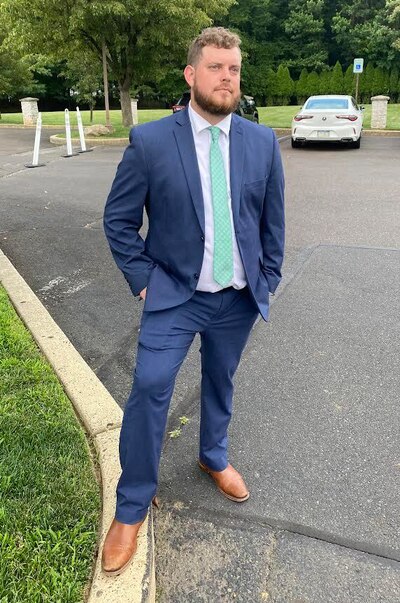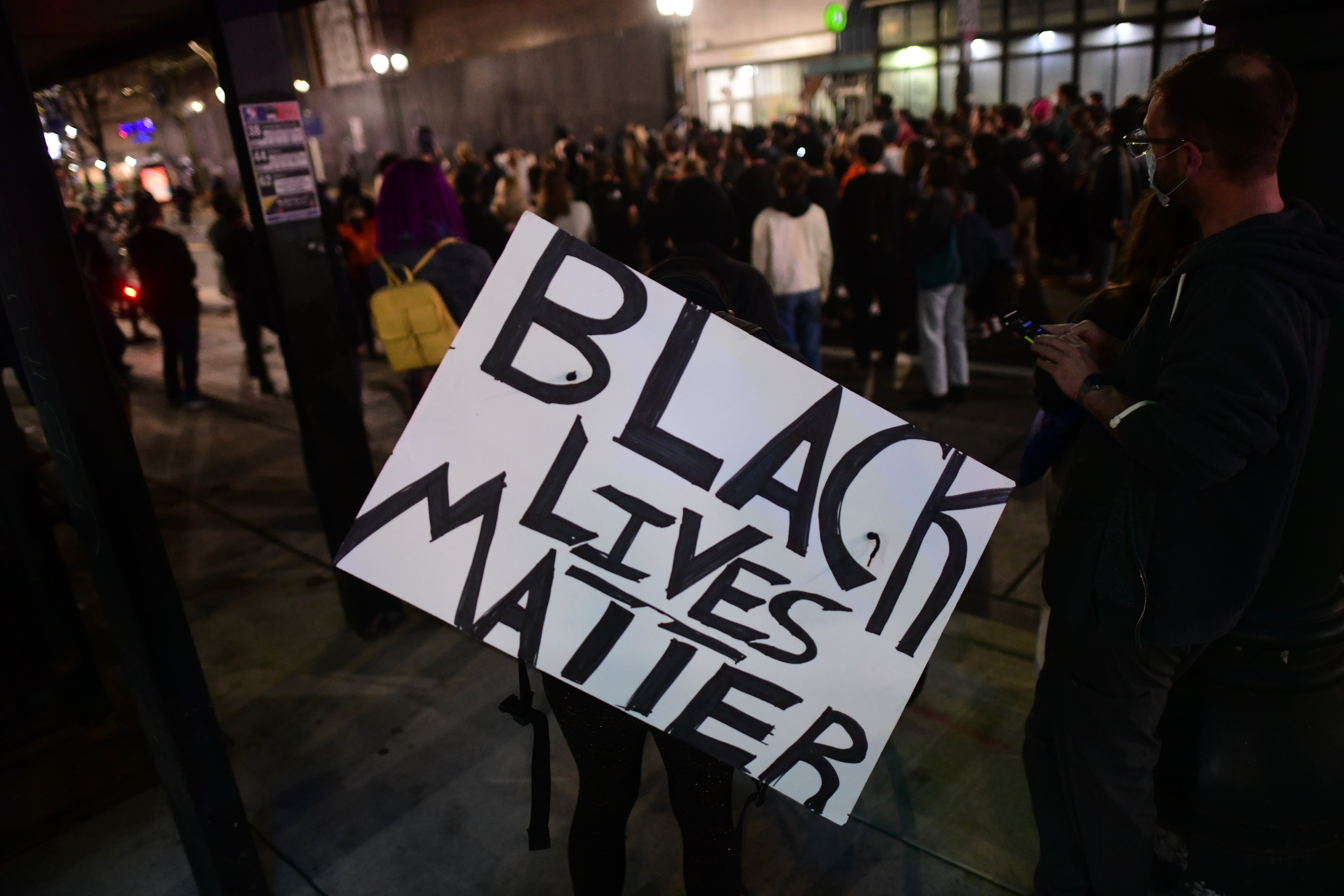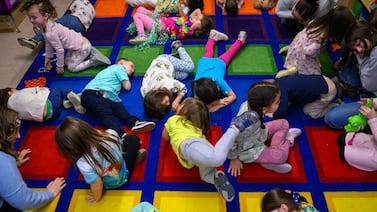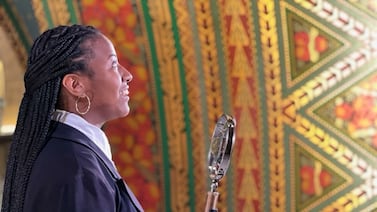Sign up for Chalkbeat Philadelphia’s free newsletter to keep up with the city’s public school system.
Jarryd Hudock engages his students by relating his lessons to their lives. “History is alive,” he said. “It’s not just the past.”
Hudock teaches English and social studies to sixth, seventh, and eighth graders at Samuel Gompers School in Philadelphia. He’s also a student council advisor and a team lead for the middle grades at the K-8 school, part of the School District of Philadelphia.

“It’s almost like being a school dad, for lack of a better term,” he said of his leadership roles. “You’re able to teach life lessons while being able to provide what kids need academically.” In addition, Hudock runs a group that gives boys space to talk about their lives.
This interview has been lightly edited for length and clarity.
Why did you decide to become a teacher?
It really started in high school. I had a 10th grade English teacher who was just incredible. I loved the way she engaged with the class. Everything we did in that class was very inspiring.
I also worked in a classroom supporting autistic students. I think that opened my eyes to the inequities that a lot of students with disabilities face. I learned they really weren’t so different.
What’s your favorite lesson to teach, and why?
Being an English teacher, I have a love for reading. Engaging students in the process of reading a book from start to finish and understanding and enjoying it, that’s really rewarding.
Some of my students have never finished a book. Just having the experience of, “I can do this,” first with support and gradually moving to independence, and having discussions about what they’re reading and making connections to their lives — that’s really rewarding for kids.
I really enjoy providing students with a glimpse into Black history and Black author studies. I teach the Harlem Renaissance, Black Wall Street, Black Lives Matter, and a lot of topics that don’t get covered in textbooks. I spend a lot of time putting together lessons that are relevant to students about what it’s like to be African American in our society.
How do you approach news events in the classroom?
We talk a lot about current events and historical events and making connections to events today.
We talked about the 9/11 terrorist attacks on the anniversary of that day, making the connection to what’s going on in the world now. We had a really dynamic discussion about how the terrorists of 9/11 used Islam as a front and how the pillars of Islam actually forbid exactly what they did, as does Christianity. We worked our way through how, 23 years later, there’s still a lot of Islamophobia in our country.
We also watched a news clip about how a number of firefighters have died after the event, and we talked about the importance of the sacrifices they made for our country and how they should be supported by the government and by people.
What was your own school experience like? How did it affect how you teach?
I had a really solid foundation. My school district had access to a lot of resources and programs.
I went to school in a rural area, so I had that experience. Then I went to college in West Chester, Pennsylvania, so I got the suburban experience, and now I live in Philadelphia. I’m married to a life-long Philadelphian. Seeing the differences in life among those three areas shows how similar we really are. We’re more alike than different.
How do you take care of yourself when you’re not at work?
The best teachers are those who are the most passionate about what they do, and a lot of that is a 24/7 job where you’re connected to your community. It’s hard to turn it off.
It’s important to have explicit time to shut things down. That means being really organized and strategic about how you’re using your time. I have two kids, and my wife is a teacher at Gompers as well. It can be difficult shutting it off, but we make sure we’re still investing in our kids, going for walks and doing things as a family.
What’s something about teaching that you’d like people to know?
The profession is shifting dramatically, with a lot of veteran teachers starting to retire or just leaving the profession because they’re burned out, and they’re not really being replaced. Younger people are also leaving because they’re burned out. There are a lot of great programs in the city providing people with pathways to become teachers, but the question of who is going to fill the void of these experts leaving the field is really concerning.








